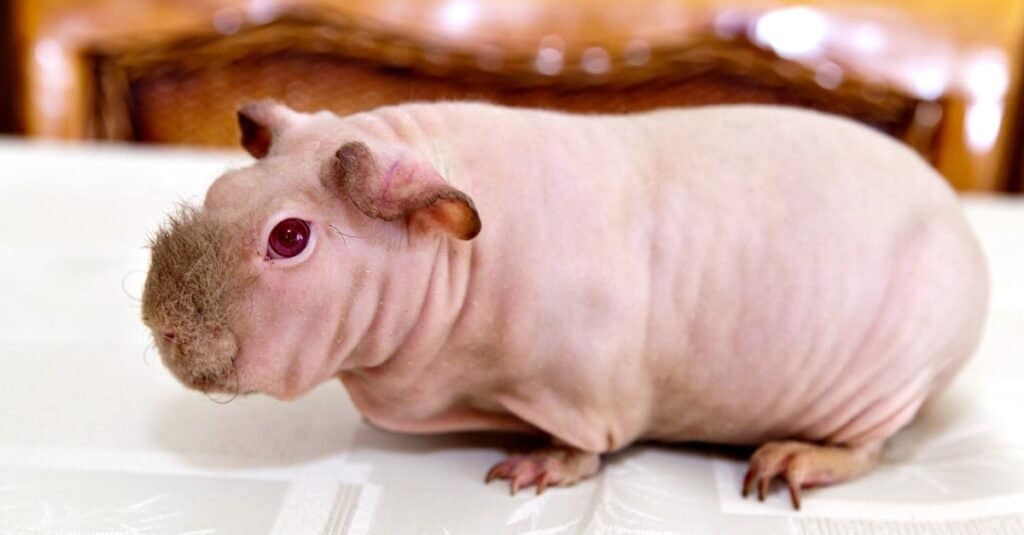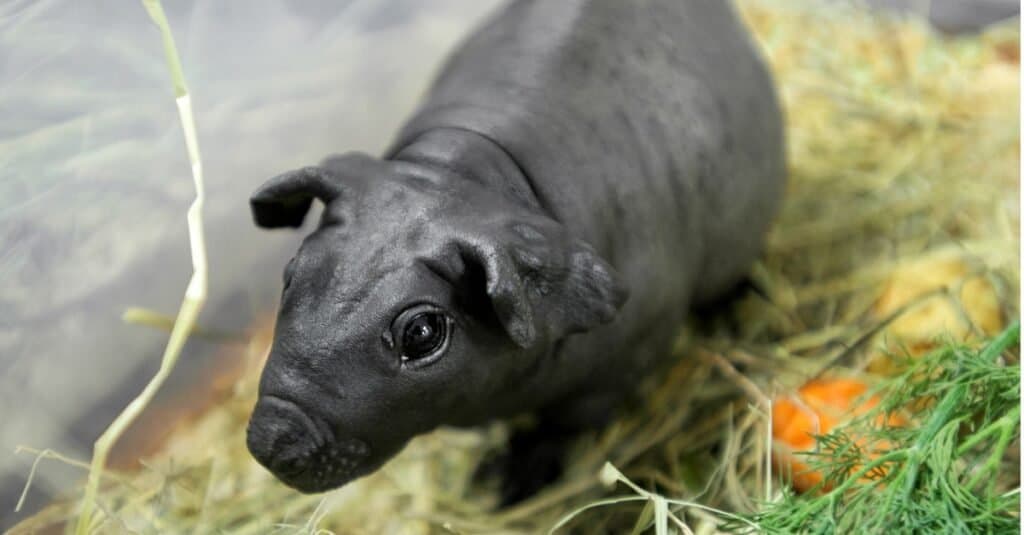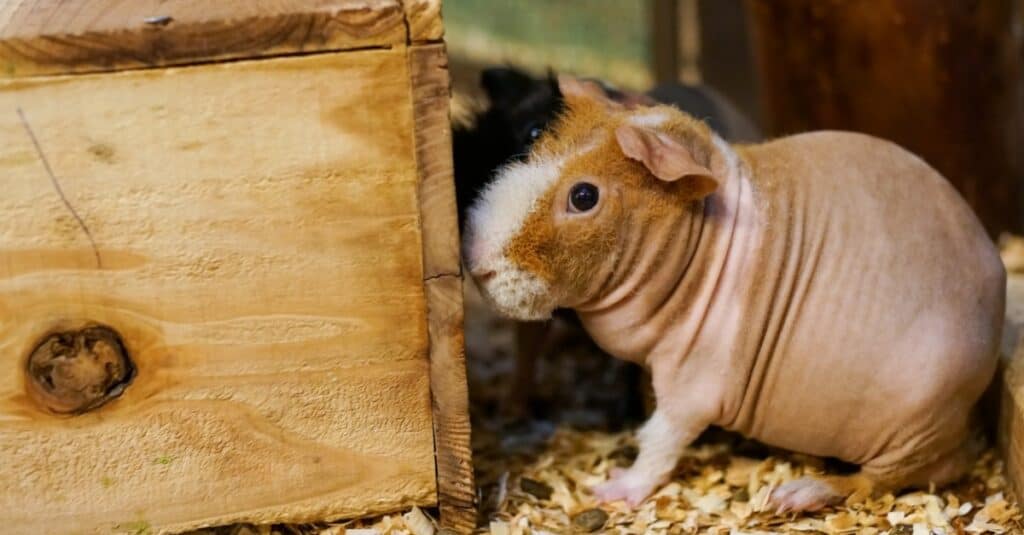Skinny pig lifespans tend to be shorter than your average guinea pig since they have a history of poor breeding. However, some skinny pigs live five to seven years or longer, especially when purchased from a reputable breeder and cared for well.
In this article, we’ll discuss how long skinny pigs live, what to expect as they grow up, and the factors that impact a skinny pig’s lifespan.
How Long do Skinny Pigs Live?

Skinny pigs often live shorter lives than furry guinea pigs.
©Anna Tronova/Shutterstock.com
The average guinea pig lives five to seven years and can live beyond 10 years if they’re lucky! However, skinny pigs often fall on the shorter end of this spectrum due to genetics and breeding.
Skinny pigs were initially bred for animal testing–specifically testing skin products. Their popularity soared when pet stores began selling them, but they, unfortunately, weren’t bred to live long happy lives.
You might find the rare reputable breeder who focuses on the health and longevity of their skinny pigs, which is much needed for these guys! Otherwise, there are many skinny pigs in rescues and shelters–just know that they may not live as long as their furry companions.
The Average Skinny Pig Life Cycle

Skinny pigs and guinea pigs can’t produce their own vitamin C, so they require it in their diet.
©iStock.com/nickpo
Baby skinny pigs are born able to do more than a kitten or puppy. Newborns can see, hear, and run around. Guinea pigs can eat solids from the day they’re born, though they also drink milk from their mothers.
Your skinny pig will be ready for their forever home at around eight weeks old. At this age, they don’t require a lot of special care. Baby guinea pigs can be given alfalfa hay until they’re six months old and then switched to grass hay such as timothy hay or orchard grass.
Adult skinny pigs are much like hairy guinea pigs in temperament and care, though they do require regular moisturizing for their sensitive skin. They also tend to eat–and poop!–double the amount as furry guinea pigs due to a faster metabolism.
Their daily care will consist of cage cleans, keeping their hay pile well-stocked, and feeding a variety of dark, leafy greens. You should weigh your skinny pig regularly to ensure they maintain a good weight and bring them to the veterinarian at least once a year for a check-up.
As skinny pigs get older, they’re very likely to develop health complications. Senior skinny pigs should see the vet once every six months.
Factors that Threaten a Skinny Pig’s Lifespan

Improper care often shortens the lifespan of skinny pigs.
©LeeSensei/Shutterstock.com
Genetics
As we touched on above, skinny pigs don’t tend to have the best genetics. This is because they were initially bred for animal testing and then breeding mills bred them in mass for selling in pet stores. They also tend to be bred for appearance over health.
They don’t tend to live as long as furry guinea pigs and may develop more health problems, such as allergies and skin conditions.
Health Problems
Health problems to watch for in your skinny pig include:
- Upper respiratory infection
- Pneumonia
- Allergies
- Parasites such as lice and mites
- Fungal infections such as ringworm
- Scurvy
- Gastrointestinal (GI) stasis
Care
Unfortunately, small animals like skinny pigs are still misunderstood and often not cared for properly. Poor care can cause a skinny pig to die before their time.
Here are some things to know before adopting your skinny pig:
- All guinea pigs have very sensitive respiratory systems. Scented cleaners, candles, and other items should be avoided. You should also never smoke around a guinea pig!
- Skinny pigs need a cage that’s at least 7.5 square feet, but ideally 10.5 square feet or greater. This allows them to get the exercise they need each day. Larger cages also stay cleaner longer, and this added hygiene can help to keep your pet healthy.
- Their cage must have ventilation. Going back to their sensitive respiratory systems, skinny pigs shouldn’t be kept in tanks or other cages without adequate ventilation. (C&C cages are great for providing lots of airflow!)
- Guinea pigs are always eating, and skinny pigs eat even more! They should have constant access to grass hay without exception, as even six to eight hours without food can be deadly. They also need a mix of daily vegetables and high-quality guinea pig pellets.
- Weekly or monthly at-home health checks can help catch health problems early. You should be weighing your skinny pig regularly and checking for signs of common health problems.
Thank you for reading! If you have feedback on this post, please contact the AZ Animals editorial team.
The photo featured at the top of this post is © GoldMillie/Shutterstock.com
Thank you for reading! Have some feedback for us? Contact the AZ Animals editorial team.






